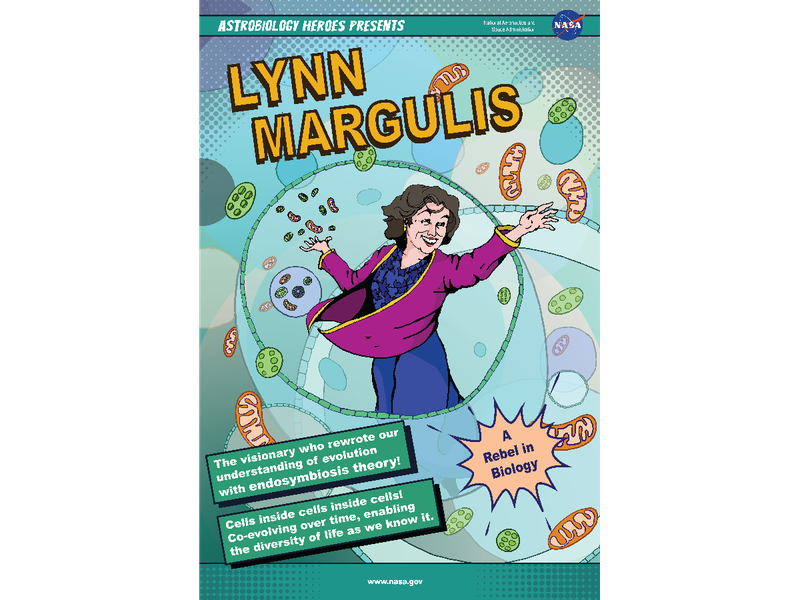Sometimes referred to as a ‘scientific rebel’ and “science’s unruly earth mother,” Lynn Margulis pushed the boundaries of knowledge in many fields related to astrobiology (1). Margulis was the first female principal investigator of NASA’s Exobiology Program and received funding for her research in microbial evolution and organelle heredity. She championed the significance of symbiosis in evolution, which has become the leading theory to describe how eukaryotic cells evolved from prokaryotic origins. The endosymbiotic theory states that some of the organelles in eukaryotic cells were once prokaryotic microbes. In her work, Margulis established the bacterial origins of organelles like chloroplasts and mitochondria. This discovery was a major advancement in the field of evolutionary biology and altered our scientific understanding of the evolution of life on Earth.


Lynn Margulis, a Scientific Rebel
Pushing the boundaries of knowledge in astrobiology.
Full Size Poster
Landscape Image (Desktop Wallpaper, Videoconference Background)
Portrait Image (Phone Wallpaper)
Although a giant in her field, Margulis also championed the work of researchers who came before her, recognizing that science advances through collaboration, inspiration, and the progression of knowledge.
In addition to her work on symbiosis, Margulis developed the Gaia hypothesis in collaboration with her friend and colleague James Lovelock (also an early Exobiology PI). This theory was foundational for today’s study of planetary systems, which guides research on the habitability of extrasolar planets.
Microcosmos: Four Billion Years of Microbial Evolution
Lynn Margulis was elected to the National Academy of Sciences in 1983 and was awarded the National Medal of Science in 1999. On top of many other honors, her papers are permanently archived in the Library of Congress in Washington, DC. Lynn Margulis was truly one of the great heroes of astrobiology.
Related:
In Memoriam: Lynn Margulis, 1938-2011
In Memoriam: James Lovelock
NASA Astrobiologists Elected to National Academy of Sciences
Read more about Lynn Margulis in Issue 7 of the Astrobiology Graphic Histories.
References:
1. Mann, C. (1991) Lynn Margulis: Science’s Unruly Earth Mother. Science, Vol 252(5004), 378-381. DOI: 10.1126/science.252.5004.378
Updated August 18, 2022
